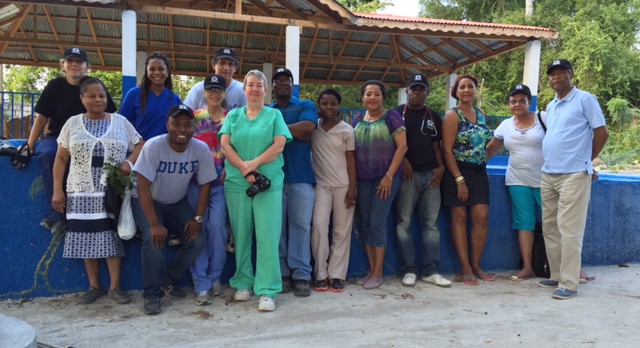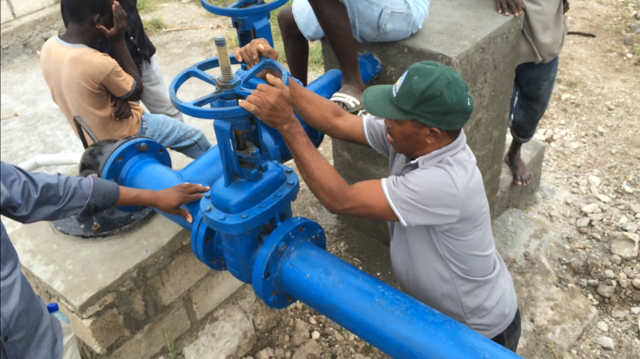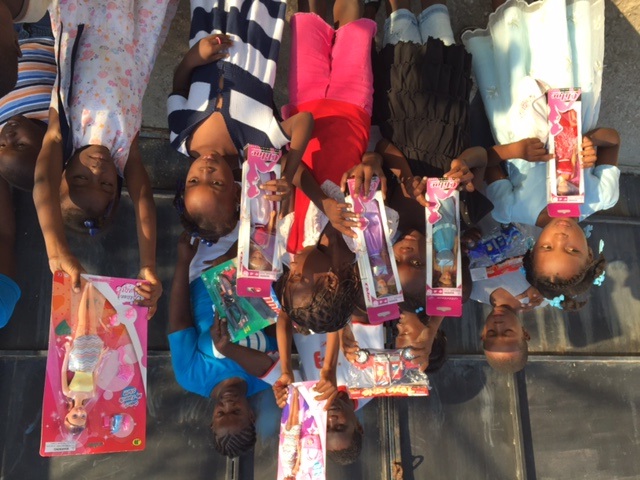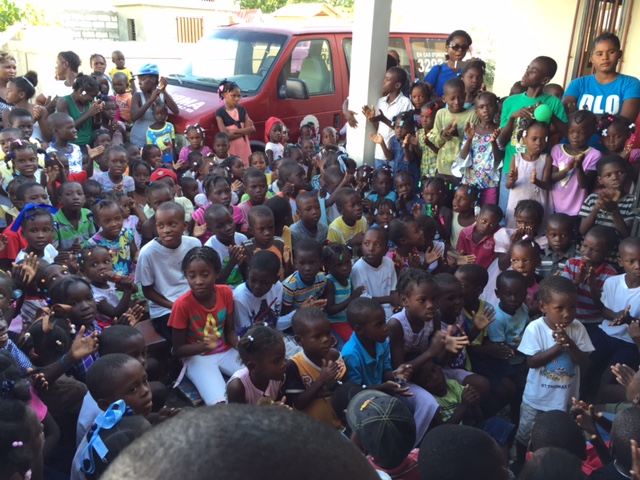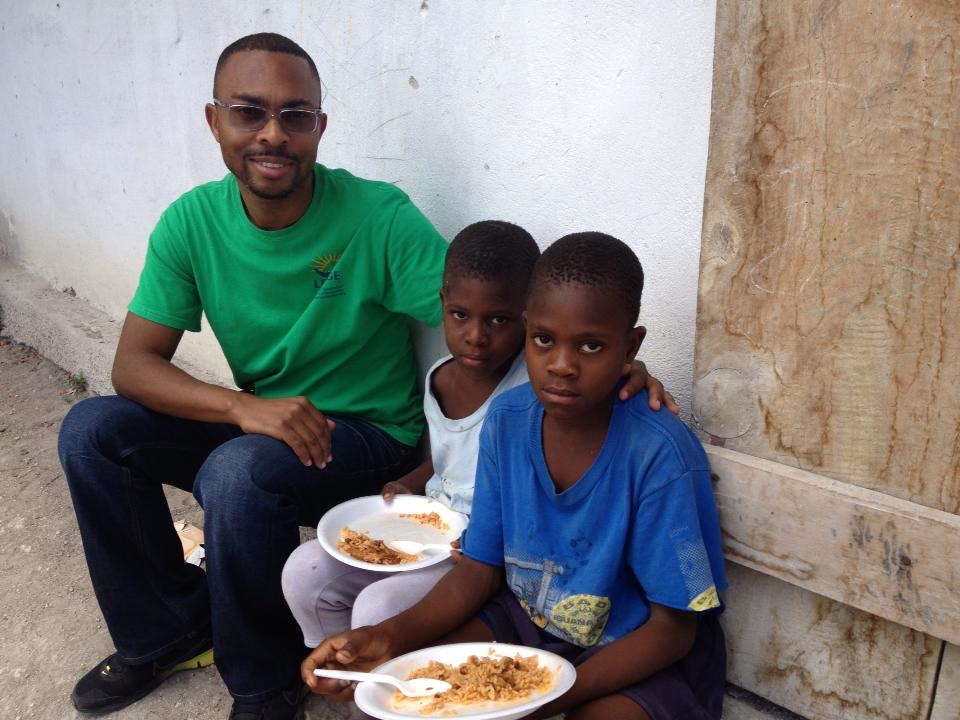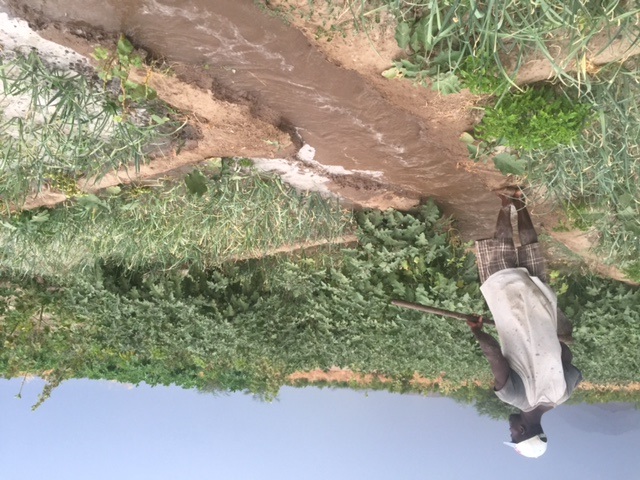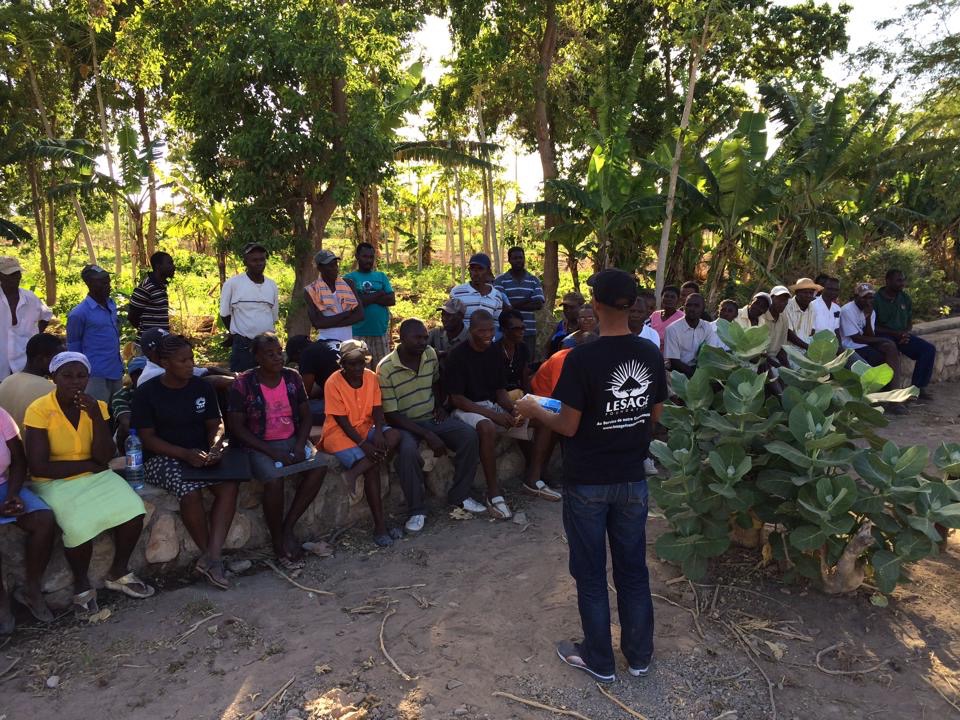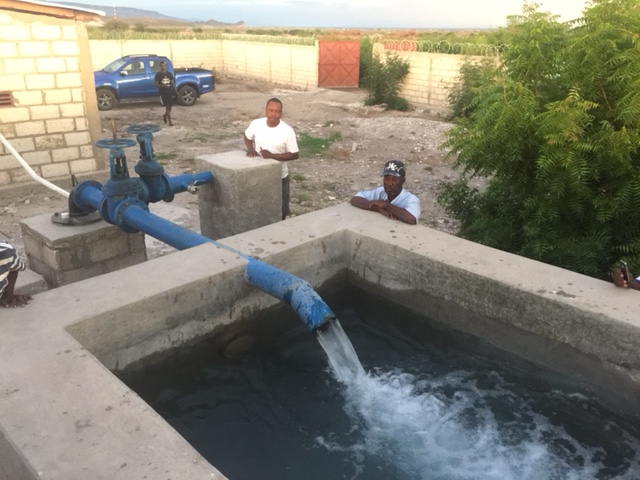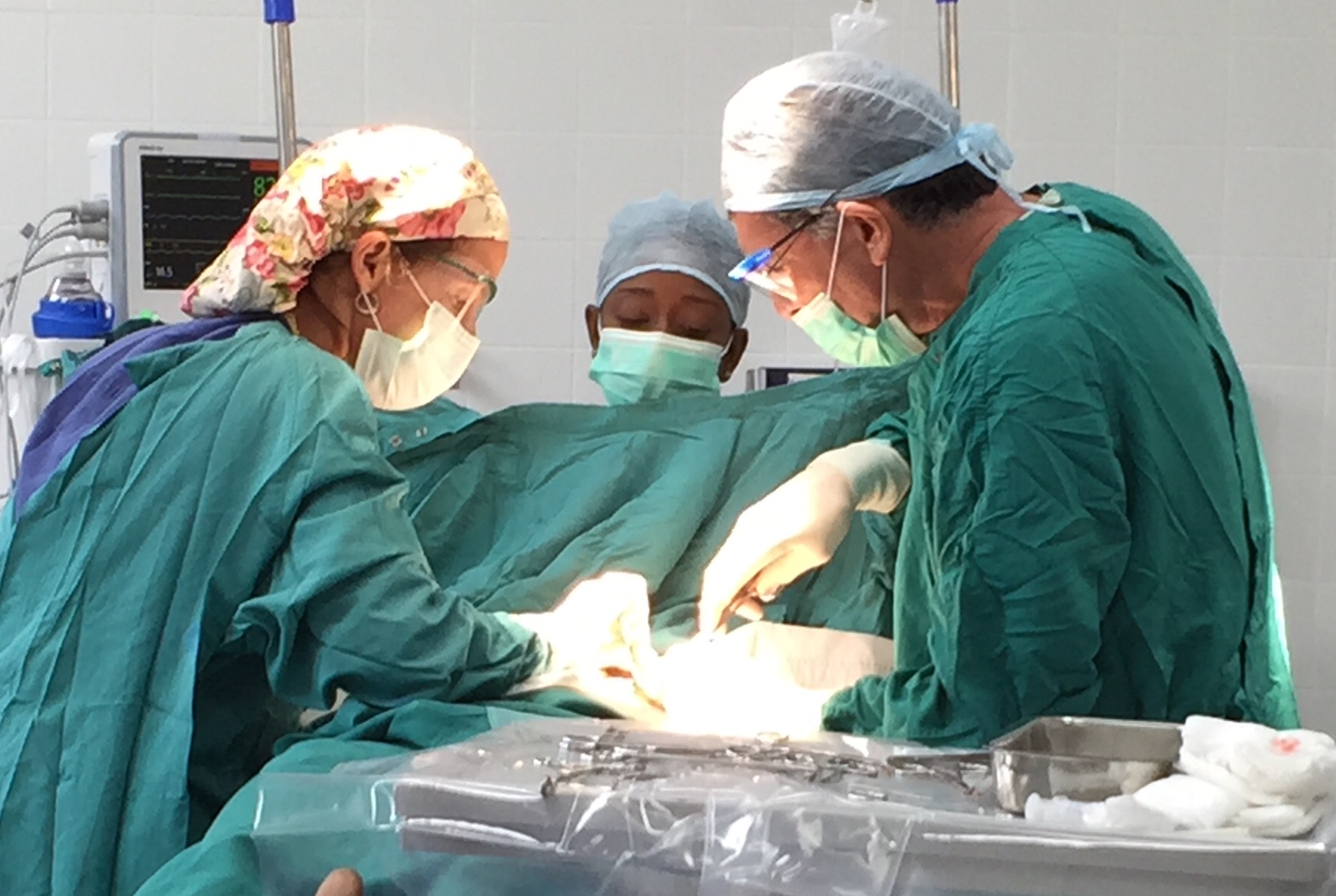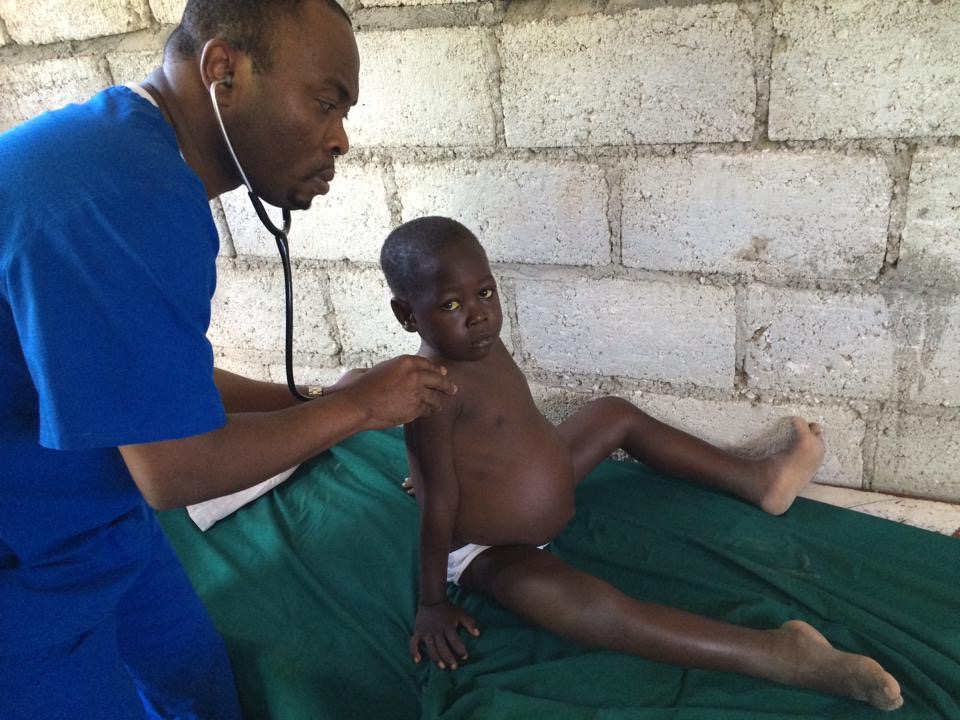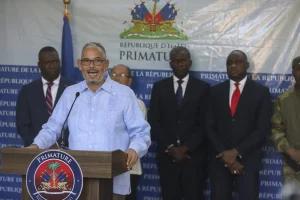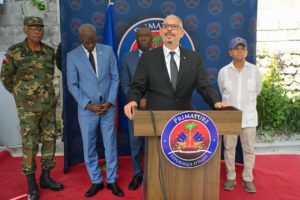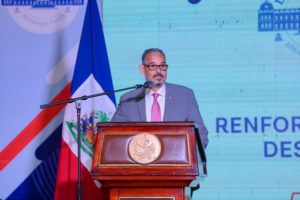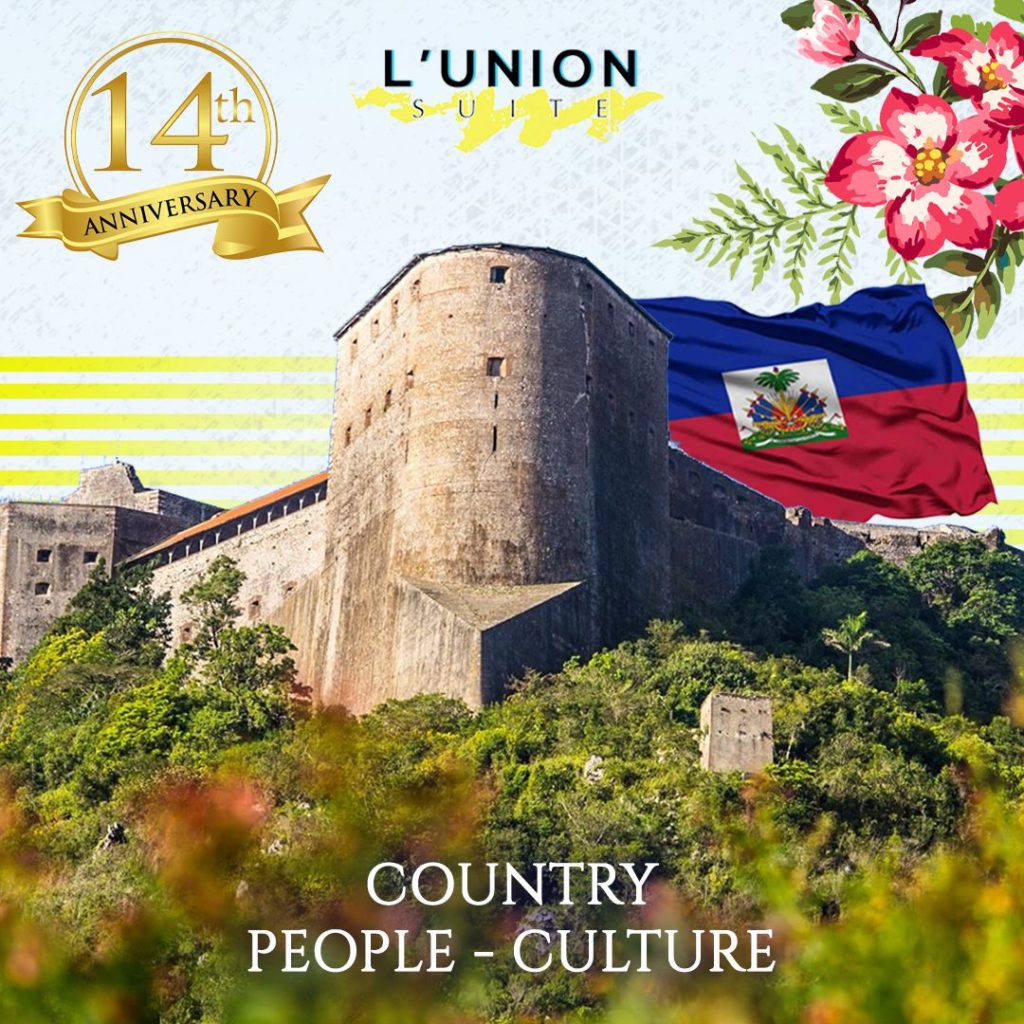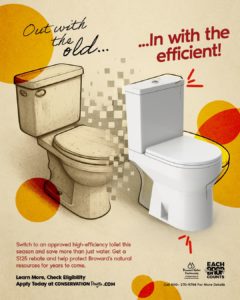With a powerful mission statement and a determined group of individuals who see helping and progress as a necessity of life, the Lesage Foundation stands tall as it faces the many challenges associated with dealing with some of Haiti’s issues. I had the pleasure to meet the president of this foundation, Hebreu Dessalines, to talk a bit about this curiously successful organization that makes the intrigue of many in the Palm Beach area.
You see, back in February, I was approached by Hebreu’s brother to attend the Lesage Foundation’s annual gala, and I have to say, I hesitated a bit at first…
So many times I had participated in those activities to only be met with disappointment, as the organizers were not delivering on their promises to the people in need. I took a chance. To say I was impressed would not even make a dent. This was a well-organized event where information married entertainment beautifully. But the reason this all came about was even more noble: This family used a tragedy to help thousands. Hebreu’s son, LeSage, was rescued from a near-catastrophic accident. Instead of lamenting on what they could not do for Lesage as a result of the accident, Hebreu and his siblings, along with their families, all decided to do what they actually COULD do to make a difference in a specific area in their country of origin: Coridon, Haiti.
These days, the Lesage Foundation has been diligently working on some very exciting projects and I ca
n’t wait to share them with you! Read along to find out how this family of 6 brothers and 2 sisters, are doing what it takes to help better the lives of many people in my dear home of Haiti.
Let’s dig in!
MeUnfinished (MU): What are some key elements you feel are important to the foundation’s thriving?
Hebreu Dessalines (HD): One key element to help Haiti is to have discipline. You can have a building or hospital in Haiti and that is easy to obtain; making it work is the hard part. We do not let others manage the projects.
We are personally invested and take the time to be present. We show up and do the work. I am in touch with Haiti at least once a day to make sure that things are being done.
MU: How are you managing this large operation on a daily basis as you are outside of Haiti?
HD: It is fundamentally the work of God! It is beyond what I thought I could do. It takes time and God is allowing us to do it. When I start to work on something, I will have it done and I am meticulous about my communication. The more I communicate with the people who work in the organization, the more we help each other get things done appropriately. Also, we obtain the best materials to deliver a high-quality product. First set a goal, then the plans, and you let it get guided by the value and beliefs you have.
MU: What would you need to help and support you in your endeavor at this time?
HD: We need visibility—not to show off, but for people to be aware and help. We do not need the press or anything like that, we are here to help not to get fame. If we go on TV or something, it’s because we are looking for help to connect and network to do a better job. Not for popularity. We cannot depend solely on ourselves and there is always something you can learn from someone else. We are looking for grants to help us with our projects, therefore grant writers and donors are welcome. If some agencies or individuals are interested in sponsoring a part of a project, we also welcome them! We would love to have a better operating capital. That’s always a need in our type of organization.
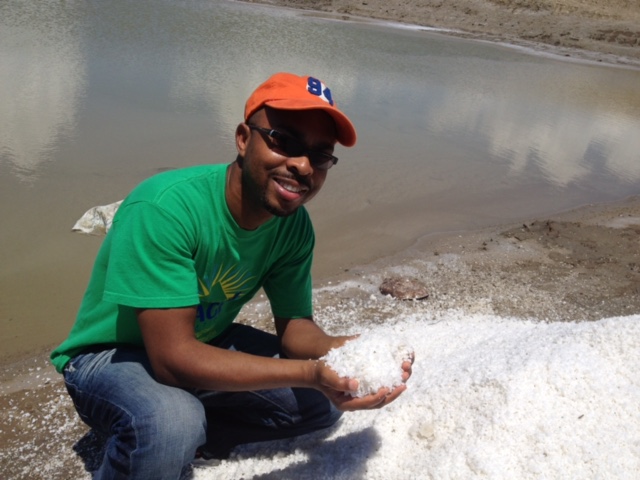
MU: Any new projects in the horizon?
HD: We are currently working with salt production. 70% of salt production in Haiti comes from Coridon (Gonaives) ~ (North-West of Port-au-Prince). This is a very poor area of the country. The people have many resources to make the town work, however they do not have any support.
The salt beds are to be cleaned efficiently to be used. Did you know that 97% of Haitians do not have access to iodized salt and that is the source of many health concerns in the country?
MU: No! Really?
HD: Indeed! We are working on helping the ar
ea restructure the salt beds using top-quality products and a state of the art infrastructure. The idea is not only to produce a quality resource, but to also create lots of jobs in the area. It is thanks to my parents’ SALT business in that area of Haiti that my family made it here to the United States. There is no system of production in that area and the salt cannot make it to the market. For now, we are looking for funding for this project and we are ready to do business! We would like to create opportunities for the community and also a way to have a sustainable revenue to fund the Lesage Foundation’s operating expenses.
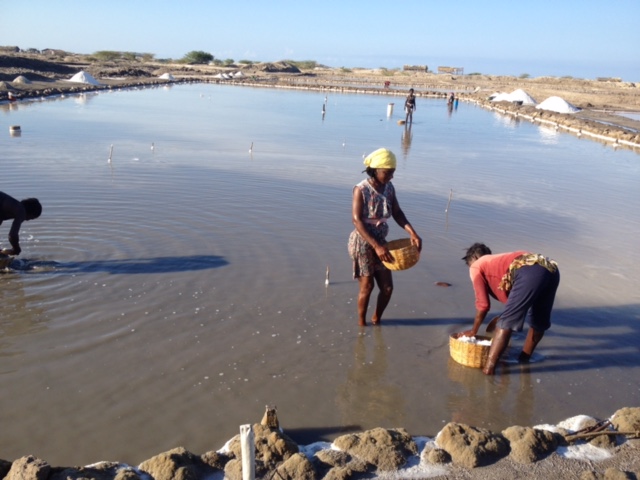
MU: The salt business sounds like an amazing project! Are there any other ways you are looking to fund the Foundation?
HD: There is also the water project where we use reverse osmosis to purify the water from a pump (pumping 800 gallons per minute) to provide potable water to the local schools. We are working on establishing an irrigation system in order for the people of the area to grow food (especially shallots), and to have potable water. That way, people can go sell their goods in the market and make a living from the land.
With the water purification project, we now have 20 tanks of 500 gallons already being used. We are trying to cover an area that includes approximately 40k people. The goal is to fight cholera that has had a negative impact in the area, and for the water produced to be a business source for the people and the Lesage Foundation as well.
MU: Those are amazing projects to say the least. What has been your driving force throughout all this?
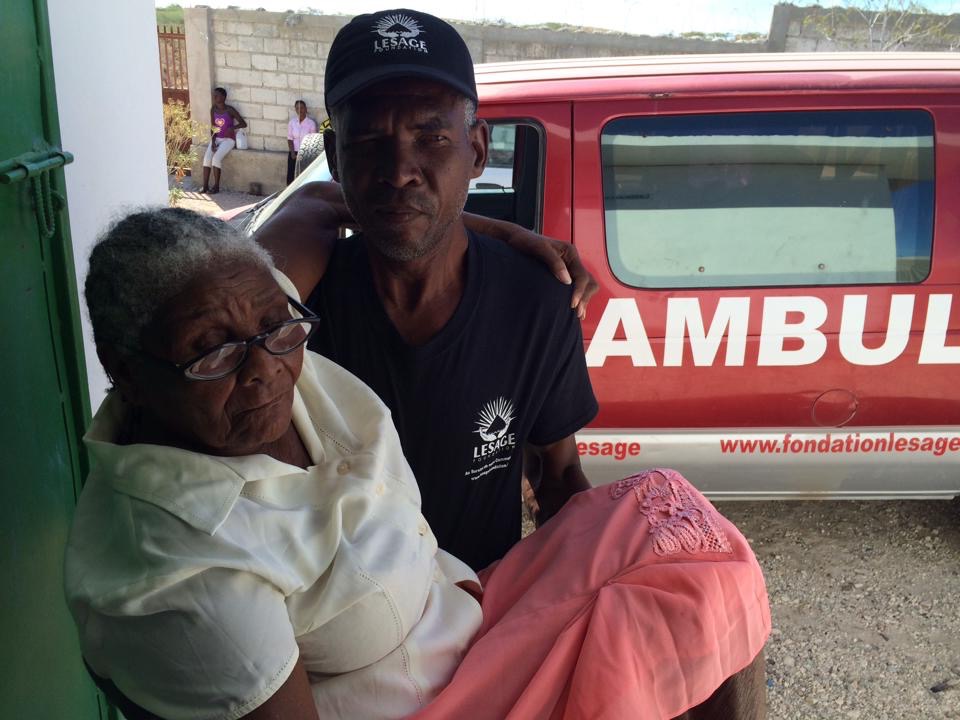 HD: LeSage, my son, is the driving force behind the whole project. The idea was there before LeSage was born. In 2008, I went to Coridon (where I am from), and I realized that we needed to do something for the place. My siblings and I thought about forming a committee to see how we could improve the lives of the people of Coridon. The committee was formed in 2009, but we did not act. In October 2010, the accident happened with my son. I assessed my limitations and realized that there were things I could not do to help my son, but thought that I could channel my capabilities in doing what I can to help others without delay.
HD: LeSage, my son, is the driving force behind the whole project. The idea was there before LeSage was born. In 2008, I went to Coridon (where I am from), and I realized that we needed to do something for the place. My siblings and I thought about forming a committee to see how we could improve the lives of the people of Coridon. The committee was formed in 2009, but we did not act. In October 2010, the accident happened with my son. I assessed my limitations and realized that there were things I could not do to help my son, but thought that I could channel my capabilities in doing what I can to help others without delay.
This fire ignited right away and soon we had obtained our 501(c)(3). We assessed the immediate needs of the region, and that is how the ambulance system was born. Without the ambulance’s fast response at the time of LeSage’s accident, we would not have him with us now. When we recognized that need, we went right for addressing it especially since the closest hospital is about 20 miles away. I wanted to afford to people in the area the same chance we got with LeSage with the ambulance coming on time to save his life. In February 2012 we had our first fundraising, and it’s been happening every year! It has helped us purchase two ambulances and get the other projects on the map.
Hebreu Dessalines is a humble man who has a big heart. I was impressed not only by the projects, but by the tenacity of using the “right” path as opposed to the “easy” one. Excellence is the motto for this group of people. I am sure that they would appreciate a hand if you are up to accomplishing great things.
Written by guest blogger Martine Jolicoeur | Follow Martine’s Blog Meunfinished







